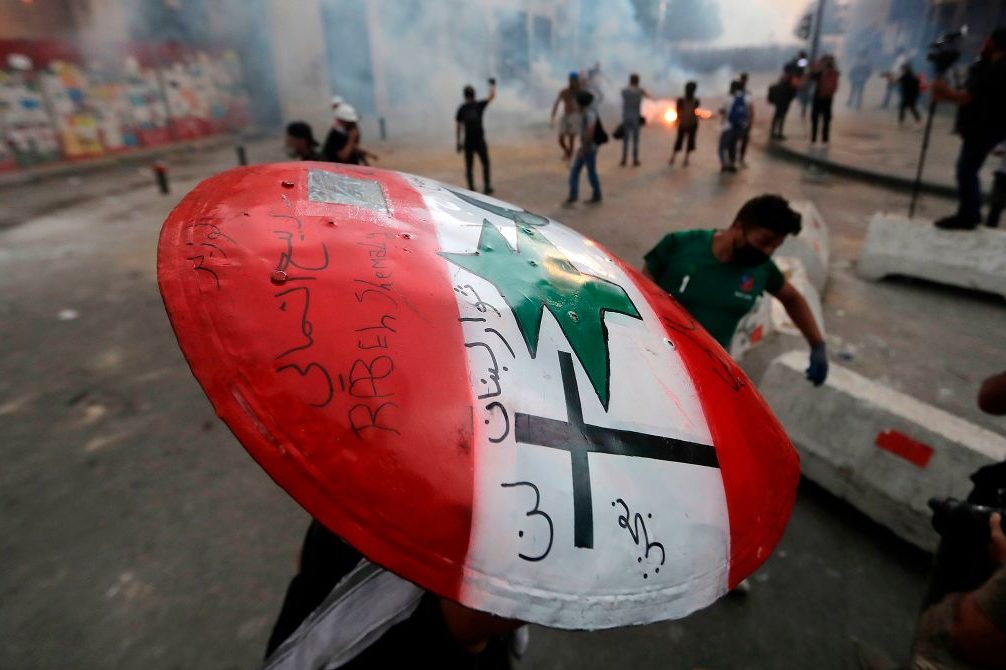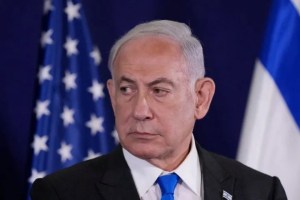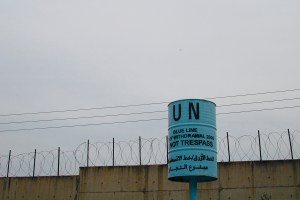It had to happen. On Monday evening, just under a week after 2,750 tonnes of ammonium nitrate stored in a warehouse at Beirut’s port exploded and killed over 160 people, the entire Lebanese government resigned. This was not a surprise. The blast resulted from negligence of the grossest kind. Three cabinet ministers and seven members of parliament had already quit. And frankly, in these times: who would even want the job?
Prime Minister Hassan Diab made the announcement in a national TV address. It came after days of protests in which demonstrators hung effigies of Lebanese President Michel Aoun, and even Hezbollah leader Hassan Nasrallah. That anyone would dare to so blatantly disrespect the leader of the Middle East’s most powerful militia group is a testament to the fury — and desperation — of the Lebanese people.
My experiences of Lebanon are of a divided country strafed by sectarian division and scarred by civil war and internecine bloodshed. I have been in the mountains with the Maronite Christians who once ran the place; and in the slums of Beirut with the resurgent Shia who now dominate, and the Party of God whom so many now follow. Always, tensions were high. Always, danger was never far away. And I always encountered the same feeling: Lebanon is a place where bad things happen.
But even by its own standards, the situation is dire in the country. In the hours leading up to the latest resignations, protesters hurled stones and Molotov cocktails at the authorities who responded in kind with tear gas. Some tried to break into the parliament. The chaos is relentless.
The blast has only compounded the existing misery. The country is facing the genuine prospect of economic collapse. Since the financial crisis officially began in October 2019 the price on many basic food items, including meat, sugar and bread have increased by a third. Now the Lebanese pound has lost 80 percent of its value. According to an estimate from Lebanon’s social affairs minister, 75 percent of Lebanese are facing poverty. This is how revolutions start.
What makes all of this worse is that Diab, with a PhD in computer engineering, was seen as a technocratic reformer. A Sunni Muslim, it was hoped he could start to improve Lebanon’s situation. He received the backing of 69 of the 128-seat Lebanese parliament — which critically included Hezbollah, the most powerful force in the country.
But it didn’t work. Things have only got worse. Not all of it is the government’s fault. The arrival of coronavirus precluded any serious attempt at reform and accelerated an economic collapse that was already in full swing. Not for nothing do people think this tiny and beautiful state is cursed.
According to Hussein Ibish, Senior Resident Scholar at the Arab Gulf States Institute in Washington, the resignations were inevitable. ‘The government has to go because public confidence in it had gone,’ he says. ‘Plus, the ministries are often superfluous anyway. This is a quasi-failed state in which some institutions work, and some don’t. The ones that do work do so anyway and it doesn’t really matter who the minister or cabinet is. The President remains, and at the ministerial level it is often a question of titular officials divvying up of political spoils than anything else. The impact of this on average person, at least in the short term, is minimal.’
The problem for the state now is simple: who will negotiate with the IMF to get the bailout that Lebanon needs, almost literally, to survive? The resignations on Monday means the country will struggle to make major concessions to the IMF, which still operates on a Washington, neoliberal consensus. Simply put: if Lebanon wants a bailout it will have to show willing. Five years ago, I watched as Greece was forced to accept the most onerous of conditions in exchange for IMF funds. And if you think the Greeks had little leverage with which to bargain, just wait until the Lebanese start.
[special_offer]
Ibish continues:
‘The choice facing the Lebanese power structure, including Hezbollah — whom many believe to be a state within a state — is simple: accept this or accept the abyss. It’s this or become like Venezuela — but without the strong central government of Caracas.’
If Lebanon has one hope, though, it’s civil society. It was not the state who came onto the streets to clean up the detritus this past week but the population: person by person, broom by broom. If Lebanon is to have any chance of moving forward it will have to reject the rigid, sectarianism of its establishment and listen, finally, to the modern, dynamic Lebanon that has been so clearly articulated in the protests these past months. There is no choice: it’s existential now.
This article was originally published onThe Spectator’s UK website.


















